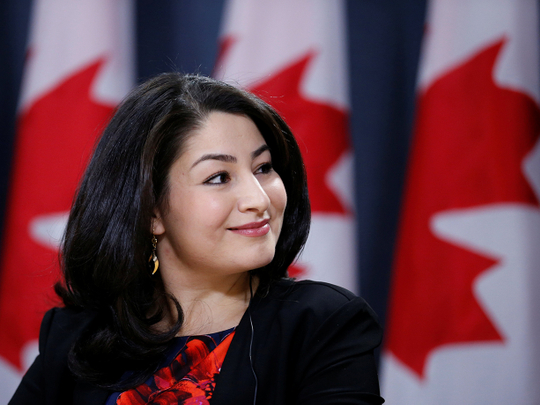
Ottawa: Canada’s Liberal government introduced a bill Thursday to increase voter eligibility, including rolling back a measure that excluded more than one million expatriates from voting in 2015.
Maryam Monsef, the minister for democratic institutions, told a news conference the reforms will “break down unnecessary barriers to voting, while enhancing the efficiency and integrity of our elections.”
The measures do not, however, go as far as the Liberals pledged during the last campaign to revamp the way Canadians vote, by dropping the current first-past-the-post system in favour of a more representational model.
Those efforts have been met with significant pushback from the opposition which has called for a referendum on proposals, while in polls Canadians showed little appetite for such a drastic change.
Monsef said she hopes to introduce that legislation in the first half of 2017, while renewing her opposition to holding a referendum.
“I don’t believe that a referendum is the best way to go about having a really complex conversation about an important public policy issue like electoral reform,” she commented.
The legislation’s proposed reforms include increased voter identification options such as allowing one voter to vouch for another who does not have proper identification, after 173,000 people did not vote in 2015 due to a lack of ID.
Another would create a national registry of future electors, aged 14-17, who would be automatically added to registration rolls when they turn 18.
In addition, expatriates who have lived outside the country for more than five years will now be allowed to cast a ballot.
Most non-residents were unable to vote in Canadian elections until 1993, when Ottawa created a special mail-in ballot for expats who had lived outside Canada for fewer than five years and intended to return.
The five-year rule was struck down in 2014, effectively depriving half of all Canadians living abroad of the right to vote.
The decision provoked a backlash and a court challenge that is still ongoing.
Actor Donald Sutherland lashed out in an opinion article at the time, saying: “I’m Canadian. There’s a maple leaf in my underwear somewhere... I have to restrain myself from saying ‘eh?’... But I can’t vote.”
Proponents of the restrictions cited possible abuses.
After the government was called to rescue nearly 15,000 Canadian citizens living abroad and with few ties to this country from Lebanon in 2006, Ottawa became openly concerned about outside influence in Canadian elections.
Those fears, however, may have been exaggerated as expat voter turnout has typically been very low.












